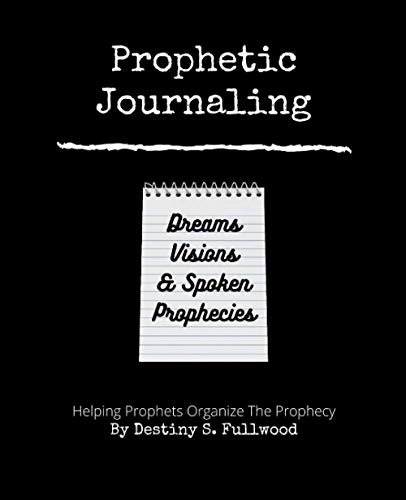Have you ever awakened from a dream with the feeling that it was trying to convey something significant to you? Maybe it felt meaningful or even predictive. Throughout history, dreams have fascinated and piqued the curiosity of scholars and societies alike, with some suggesting they carry divine messages or have the power to predict future events. Particularly, prophetic dreams have captivated people throughout centuries.
But what exactly are they? In this article, we will explore the definition of prophetic dreams, their types and common themes, the science behind them, methods for recalling them, interpreting them and famous examples that have left an indelible mark on human history.
Key Takeaways
- Prophetic dreams are dreams that are believed to predict or foretell future events and are culturally significant in many societies.
- There are two main types of prophetic dreams: premonition dreams that provide a warning or insight into the future, and true prophecy dreams that are believed to be divine messages or revelations.
- Prophetic dreams often contain symbolic or literal interpretations of events, and three prominent themes include natural disasters, personal events, and world events.
- Prophetic dreams are believed to occur during REM sleep, and it is important to interpret the symbolism in dreams and use methods for recalling and analyzing them to understand their significance. Famous examples of prophetic dreams include Martin Luther King Jr.’s dream, which had a significant impact on history.

Prophetic Journaling: Organizing Your Dreams, Visions, and Spoken Prophecies
As an affiliate, we earn on qualifying purchases.
As an affiliate, we earn on qualifying purchases.
Definition of Prophetic Dreams
Prophetic dreams, defined as dreams that predict future events, have been studied by scientists and philosophers for centuries. The origin of prophetic dreams can be traced back to ancient civilizations where they were revered as messages from the divine or supernatural beings.
These dreams hold cultural significance in many societies and are often considered powerful tools for guiding individuals towards their destiny. In some cultures, prophetic dreams are viewed as a gift bestowed upon select individuals who possess an innate ability to receive them. In other cultures, these dreams are believed to be a result of spiritual practices such as meditation and prayer.
Regardless of their origin, the power of prophetic dreams lies in their ability to offer insights into the future that can aid decision-making or prepare individuals for forthcoming events. With this understanding of the definition and cultural significance of prophetic dreams, let’s now explore different types of these extraordinary experiences.

The Dream Interpretation Dictionary: Symbols, Signs, and Meanings
As an affiliate, we earn on qualifying purchases.
As an affiliate, we earn on qualifying purchases.
Types of Prophetic Dreams
You probably don’t wanna hear about the different kinds of dreams that can reveal future events, but if you’re curious, let me explain.
There are two main types of prophetic dreams: premonition and true prophecy.
Premonition dreams involve a sense of impending danger or foreboding, but they don’t necessarily provide specific information about what will happen.
On the other hand, true prophetic dreams offer clear and detailed insights into future events.
It’s important to note that both types of dreams can be either symbolic or literal in their interpretation.
While some people may dismiss symbolism as irrelevant or confusing, it’s actually a valuable tool for understanding prophetic messages.
With this in mind, let’s explore some common themes in prophetic dreams.

Dodow Sleep Aid Device – Over 1 Million Users are Falling Asleep Faster with Dodow!
Natural Sleep Aid – Dodow uses a metronome and light system to teach you how to fall asleep…
As an affiliate, we earn on qualifying purchases.
As an affiliate, we earn on qualifying purchases.
Common Themes in Prophetic Dreams
As I’ve explored the topic of prophetic dreams, one common thread that keeps emerging is the presence of certain themes that recur across different dream experiences.
Three prominent themes that I’ve noticed are natural disasters, personal events, and world events. It’s fascinating to see how these types of dreams can act as a sort of warning system for the dreamer, alerting them to potential dangers or significant changes in their life or the wider world around them.
By examining these recurring themes more closely, we can gain deeper insight into the nature and purpose of prophetic dreaming.
Natural Disasters
Amidst the devastation caused by natural disasters, our dreams can often serve as a warning sign for us to be better prepared. In my experience, prophetic dreams about natural disasters are vivid and intense, leaving me with a sense of urgency to take preparation measures.
These dreams often feature scenes of destruction and chaos, such as floods, hurricanes, or earthquakes. I believe that these dreams are not meant to scare us but rather to help us avoid potential danger.
They are warning signs that we should pay attention to and take action accordingly. By preparing ourselves for possible natural disasters, we can protect ourselves and our loved ones from harm.
With this in mind, let’s explore how prophetic dreams can also give insight into personal events in our lives.
Personal Events
When facing personal events, it’s important to pay attention to your intuition and trust your gut feeling. As someone who’s experienced prophetic dreams, I’ve learned that these dreams can hold significant spiritual significance.
Dream interpretation can reveal hidden insights into our lives and provide guidance on how we should navigate the future. Prophetic dreams can provide insight into personal relationships and reveal unresolved issues or unspoken feelings. By addressing these issues, we can strengthen our relationships and avoid potential conflicts.
Dreams about career or life goals may indicate a need for change and suggest that we’re not living up to our full potential. By taking action towards our goals, we can lead a more fulfilling life.
Dreams are not just random occurrences in our minds; they often hold deeper meanings that we should take seriously. However, prophetic dreams aren’t limited to just personal events; they also extend to world events.
World Events
Pay attention to the signs around you, as they may hold deeper meanings and provide insight into world events. As someone who pays close attention to my dreams, I’ve found that prophetic dreams can often reveal political predictions and economic forecasts. These types of dreams can offer a glimpse into the future, allowing us to prepare for what’s to come.
For instance, I once had a dream about a major stock market crash months before it actually happened. At first, I dismissed it as just another strange dream. However, when the event unfolded in reality, it became clear that my dream was a warning sign. This experience showed me firsthand how prophetic dreams can be incredibly powerful tools for gaining insight into world events and making informed decisions based on what we see in our subconscious minds.
As we explore the science of dreams in the next section, we’ll delve deeper into how these messages from our subconscious minds work and how we can better understand them for our personal growth and development.

Mindsight 'Breathing Buddha' Guided Visual Meditation Tool for Mindfulness | Slow Your Breathing & Calm Your Mind for Stress & Anxiety Relief | Perfect for Adults & Kids (Multicolor, Pebble (Sound))
🧠 Introducing (6) Ambient Nature Sounds: the addition of crashing waves, birds chirping or a strong breeze can…
As an affiliate, we earn on qualifying purchases.
As an affiliate, we earn on qualifying purchases.
The Science of Dreams
As I delve into the science behind dreams, I’m fascinated by the different stages of sleep and how they affect our dreaming experiences.
During REM sleep, which is when most of our vivid dreams occur, our brain activity is heightened and resembles that of being awake.
This has led to various theories on why we dream and what purpose it serves for our brains and bodies.
Stages of Sleep
During REM sleep, you’ll experience a heightened level of brain activity and muscle paralysis, which is essential for prophetic dream occurrences. This stage of sleep is characterized by rapid eye movement, increased heart rate, and breathing, and vivid dreams that often feel real.
In contrast to non-rapid eye movement (NREM) sleep, where brain activity is slow and steady, REM sleep is when the brain becomes more active than it does during waking hours.
While scientists still don’t fully understand why we dream or what purpose it serves, studies have shown that dreams can provide insight into our subconscious thoughts and emotions.
Prophetic dreams, in particular, are believed to be a result of the brain’s ability to process information and make connections while we sleep. With this understanding of the stages of sleep as a foundation, let’s now delve deeper into the topic of brain activity during dreams.
Brain Activity During Dreams
As we learned in the previous subtopic, there are different stages of sleep that our brain goes through. During REM (Rapid Eye Movement) sleep, which is the stage where most dreaming occurs, our brains become incredibly active. This is because during this stage, our brain waves resemble those when we’re awake and processing information.
According to studies on brain activity during dreams, it seems like our brains are trying to make sense of various inputs and memories by creating a narrative or story-like structure. In fact, some researchers believe that dreams may serve as a way for us to process emotions and experiences that we haven’t fully dealt with in waking life.
Here are three interesting findings about brain activity during dreams:
-
The frontal lobe – responsible for decision-making and logical thinking – is less active during dreaming than when we’re awake.
-
The amygdala – associated with emotion regulation – becomes more active during dreaming.
-
The visual cortex shows increased activity during REM sleep, which makes sense since many of our dreams involve vivid visual imagery.
Moving onto the next section about theories on dreaming…
Theories on Dreaming
Get ready to explore different theories on why you might experience dreams during your sleep!
Some scientists believe that dreaming is simply a byproduct of brain activity during REM sleep, while others argue that it serves a more important purpose in helping us process emotions and memories.
One interesting theory suggests that dreaming is our brain’s way of practicing problem-solving and decision-making skills in a safe environment.
Dream symbolism is also an area of interest for many researchers. Some believe that certain dream symbols can reflect our subconscious thoughts and desires, while others argue that they are simply random images created by the brain.
Additionally, some people may experience lucid dreaming, where they become aware that they are dreaming and can even control their actions within the dream.
Now let’s transition into how prophetic dreams happen.
How Prophetic Dreams Happen
Prophetic dreams occur when the subconscious mind communicates important information to the dreamer through symbols and metaphors. These dreams are often filled with vivid imagery that can be interpreted in different ways.
Interpretation techniques, such as journaling or working with a dream therapist, can help one understand the spiritual significance of these dreams. To further understand how prophetic dreams happen, it’s important to note that they are not always literal predictions of the future. Instead, they may reveal deeper insights into our current situations or provide guidance for decision making.
Additionally, prophetic dreams can come from a variety of sources: a higher power, the collective unconscious, or inner wisdom. Understanding the source of your prophetic dream may help you better interpret its message and apply it to your waking life.
With this knowledge in mind, let’s explore methods for recalling dreams and strengthening our ability to receive prophetic messages from our subconscious minds.
Methods for Recalling Dreams
When it comes to recalling dreams, I’ve found that there are a few methods that work particularly well.
The first is keeping a dream journal by my bed and writing down any dreams I remember as soon as I wake up. This helps me to solidify the memories and details of the dream in my mind.
Another method is practicing mindfulness throughout the day, which can help improve overall memory recall and make it easier to remember dreams at night.
Finally, setting intentions before sleep can be helpful in directing your subconscious towards remembering your dreams upon waking up.
Keeping a Dream Journal
Maintaining a dream journal can enhance one’s ability to recall and analyze the intricacies of their subconscious mind. Dream interpretation is an essential component in understanding the messages conveyed by our dreams.
By maintaining a dream journal, we can keep track of recurring symbols, themes, and emotions that arise during our sleep. Additionally, recording details such as colors, sounds, and sensations in our dreams can help us achieve lucid dreaming – the ability to become aware that we’re dreaming within a dream.
Incorporating mindfulness practices into our daily routine can also aid in achieving lucid dreaming and interpreting the messages conveyed by our subconscious mind. Mindfulness involves being fully present in the moment and observing our thoughts without judgment.
This practice allows us to develop greater self-awareness and recognize patterns in our behavior that may be influencing our dreams. By combining mindfulness practices with dream journaling, we can gain deeper insights into ourselves and unlock the mysteries of our subconscious mind.
Mindfulness Practices
As you journey through the vast expanse of your mind, don’t forget to embrace the power of mindfulness techniques. Mindfulness practices are simple yet powerful tools that can help you develop a deeper connection with yourself and the world around you. These techniques involve paying attention to your thoughts, emotions, and physical sensations in a non-judgmental way.
By practicing mindfulness regularly, you can reduce stress and anxiety levels, improve your mood, boost your immune system, and enhance your overall well-being. In addition to these benefits, mindfulness techniques can also help you become more aware of your dreams and increase the likelihood of having prophetic dreams. So take some time each day to practice mindfulness and see how it can transform your life.
Now that we’ve explored the benefits of mindfulness practices, let’s move on to setting intentions before sleep. This is another powerful technique that can help you tap into the wisdom of your subconscious mind and receive guidance from higher realms.
Setting Intentions Before Sleep
Setting intentions before bed can be a powerful way to tap into your subconscious mind and receive guidance for the day ahead. It’s an easy practice that involves setting a clear intention or goal before going to sleep, with the aim of allowing your subconscious mind to work on it during the night.
Here are some benefits of intention-setting before sleep:
- Improved focus: When you have a clear goal in mind, it’s easier to stay focused and motivated throughout the day.
- Increased self-awareness: Setting intentions regularly helps you become more aware of your thoughts and feelings, which can lead to greater emotional intelligence.
- Lucid dreaming: By setting an intention for what you want to dream about, you may increase your chances of having lucid dreams – dreams where you’re aware that you’re dreaming and can even control the content.
Intention-setting is a simple but effective practice that can help us access our intuition and inner wisdom. By making it a habit, we can increase our self-awareness, improve our focus, and even enhance our dream experiences. This leads us into interpreting prophetic dreams – a fascinating topic that reveals how much our subconscious mind has to offer us if we pay attention.
Interpreting Prophetic Dreams
You can’t help but feel intrigued when interpreting prophetic dreams. Have you ever had a dream that felt like it held a deeper meaning or message? Dreams have been interpreted as messages from the divine, and understanding their symbolism can reveal spiritual significance in our lives. Interpreting symbolism in dreams is not an exact science, but it can be helpful to keep a dream journal and reflect on common themes and images.
In order to interpret prophetic dreams, we must be open to the possibility of receiving messages from entities beyond our conscious awareness. Dreams are often symbolic representations of unconscious thoughts and feelings, so being able to decode these symbols requires introspection and self-awareness. The following table provides some common dream symbols and their potential meanings:
| Symbol | Potential Meaning |
|---|---|
| Water | Emotions |
| Fire | Passion |
| Birds | Freedom |
| Snakes | Transformation |
| Teeth | Communication |
As we begin to understand symbolic representation in our own experiences, we may start to recognize patterns that emerge across different dreams. This can provide insight into recurring issues or emotions that require attention in our waking lives. However, it’s important to approach these interpretations with skepticism and criticism – not every dream has a profound meaning, and sometimes they are simply reflections of daily life experiences or random neural firings during sleep.
Skepticism and Criticism
Interpreting prophetic dreams can be a daunting task, especially when faced with skepticism and criticism. Some people believe that these dreams are nothing more than random images created by the subconscious mind, while others think that they are messages from a higher power. As someone who’s experienced prophetic dreams firsthand, I understand the importance of analyzing evidence and debunking myths in order to gain a better understanding of their meaning.
Despite the skeptics’ claims, there is evidence to suggest that prophetic dreams can be real and meaningful. For example, many people report having similar dreams about major world events before they happen, such as natural disasters or political upheavals. Additionally, some studies have shown that certain brain waves are associated with dreaming about future events. However, it’s important to approach these claims with a critical eye and not blindly accept them as fact.
Skepticism and criticism can make it difficult to take prophetic dreams seriously. Analyzing evidence is crucial in determining whether these types of dreams hold any significance. Debunking myths surrounding prophetic dreams helps us gain a clearer understanding of their potential meanings.
Moving onto the next section about famous prophetic dreams…
Famous Prophetic Dreams
If you’re interested in the potential validity of dreams predicting future events, there are several famous examples that may pique your curiosity.
For instance, some people believe that Abraham Lincoln’s dream about his own assassination was a premonition of his death. In this dream, he saw himself lying in state at the White House and heard mourners weeping. A few days later, he was assassinated by John Wilkes Booth.
Another example is the dream of Martin Luther King Jr., which he had before he gave his iconic "I Have a Dream"speech. In this dream, he saw himself giving a speech to thousands of people and preaching for equality and justice. This prophetic dream became a reality on August 28th, 1963 when MLK delivered his famous speech in front of an audience of over 250,000 people during the March on Washington for Jobs and Freedom.
These famous prophetic dream examples showcase the significance of prophetic dreams in history and how they can be interpreted as messages from a higher power or one’s subconscious mind.
Frequently Asked Questions
Can prophetic dreams predict the future accurately?
Prophetic dreams may accurately predict the future, but scientific explanations are limited. Personal beliefs and interpretations play a role in their accuracy. Serving others requires discernment between intuition and coincidence.
Are prophetic dreams exclusive to certain cultures or religions?
Cultural diversity plays a significant role in prophetic dreams. Historical examples reveal that different cultures and religions interpret them differently. Understanding this diversity is essential to interpreting and benefiting from these dreams.
Is there a way to induce prophetic dreams?
I’ve found that lucid dreaming and dream journaling can increase the likelihood of having prophetic dreams. By becoming aware in a dream, I’m more likely to remember and interpret its meaning. Writing it down helps me track patterns and themes.
Can everyone have prophetic dreams or is it a rare phenomenon?
Prophetic dreams are not limited to a select few. Anyone can tap into the power of prophetic dreams for insight, creativity and intuition. Exploring their origins and potential can enhance everyday life for all.
Can prophetic dreams be used for personal or professional development?
Prophetic dreams can provide insight for personal and professional growth. Journaling benefits include tracking patterns, themes, and emotions throughout the dream. Dream interpretation allows for self-reflection and action towards desired outcomes.
Conclusion
In conclusion, as someone who’s experienced prophetic dreams firsthand, I can attest to the power and mystery behind them. While skeptics may argue that these dreams are merely coincidences or products of subconscious thoughts, the fact remains that they often provide insight and guidance for those who experience them.
Perhaps it’s mere coincidence that certain events come to pass after being foretold in a dream. But perhaps there’s something more at work, something beyond our current understanding of science and the human mind.
Regardless of one’s beliefs, there’s no denying the significance and impact that prophetic dreams can have on an individual’s life.
So whether you dismiss them as chance occurrences or view them as glimpses into a higher realm of consciousness, there’s no denying the intriguing nature of prophetic dreams. Who knows what insights and revelations await us in our own dreamscapes? It may just be a matter of keeping an open mind and paying attention to the signs around us.









